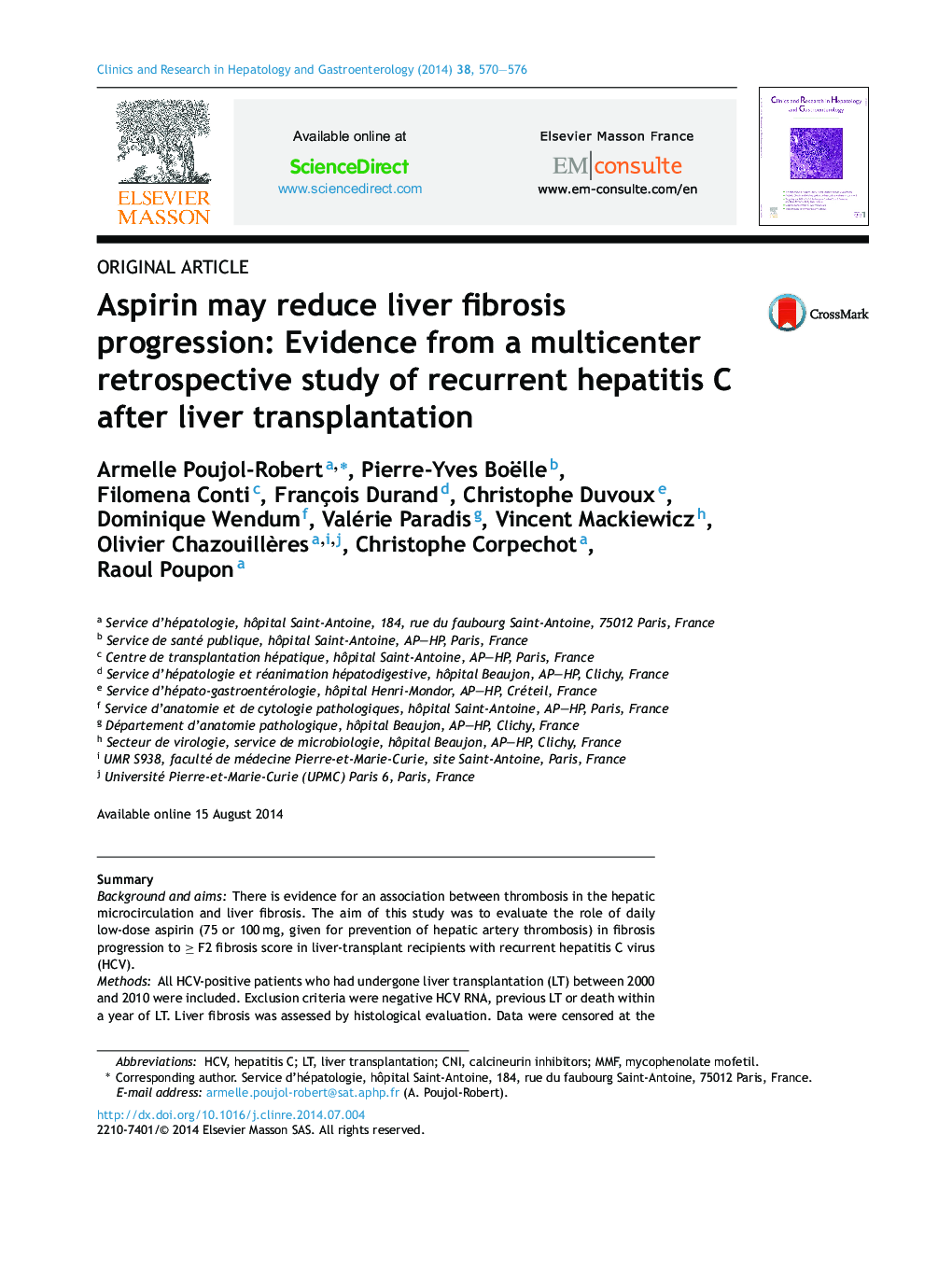| Article ID | Journal | Published Year | Pages | File Type |
|---|---|---|---|---|
| 3286439 | Clinics and Research in Hepatology and Gastroenterology | 2014 | 7 Pages |
SummaryBackground and aimsThere is evidence for an association between thrombosis in the hepatic microcirculation and liver fibrosis. The aim of this study was to evaluate the role of daily low-dose aspirin (75 or 100 mg, given for prevention of hepatic artery thrombosis) in fibrosis progression to ≥ F2 fibrosis score in liver-transplant recipients with recurrent hepatitis C virus (HCV).MethodsAll HCV-positive patients who had undergone liver transplantation (LT) between 2000 and 2010 were included. Exclusion criteria were negative HCV RNA, previous LT or death within a year of LT. Liver fibrosis was assessed by histological evaluation. Data were censored at the date of the last histological evaluation before starting anti HCV therapy. Progression to fibrosis F ≥ 2 was analyzed with a multistate model with time-dependent covariables.ResultsOne hundred and eighty-eight patients were included. In univariate analysis, older recipient and donor age, male donor gender, activity score ≥ A2 after LT, number of steroid boluses and aspirin intake (HR: 0.75 [0.57–0.97]; P = 0.03) influenced the risk of progression to fibrosis ≥ F2. In multivariate analysis, adjusted on site, older donor age, male donor gender, activity score ≥ A2 and number of steroids boluses, remained independent predictors of fibrosis progression, while younger recipient age and aspirin intake (HR: 0.65 [0.47–0.91]; P = 0.01) were associated with a slower fibrosis progression.ConclusionLow-dose aspirin treatment might be associated with a lower risk of liver fibrosis progression in patients with HCV recurrence after LT.
